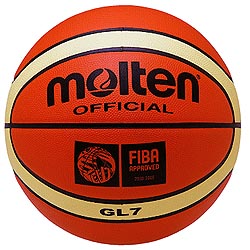Is AGELESS Confusingly Similar with AGE-LESS SKIN FORMULA?
Lacey, Washington-based Univera Lifesciences, Inc., has brought a declaratory judgment action in the Western District against Texas-based Bluebonnet Nutrition Corp. The question is whether Univera’s use of AGELESS in connection with dietary supplements is confusingly similar with Bluebonnet’s use of AGE-LESS SKIN FORMULA for nutritional supplements. Univera states it sells its supplements through a multi-level distribution network and Bluebonnet sells its supplements through retail stores.
Univera brought suit after receiving a cease-and-desist letter from Bluebonnet alleging confusing similarity. Bluebonnet has not yet answered the complaint.
The case is captioned as Univera Lifesciences, Inc. v. Bluebonnet Nutrition Corp., No. C06-5721. It is situated in Tacoma and assigned to Judge Ronald Leighton.
Other Seattle Law Blogs
Last month, the Chicago IP Litigation Blog wrote about regionally-focused IP law blogs, including STL. That got me thinking. Who is blogging in Seattle? As best I can tell, there are about a dozen active blogs published by Seattle law firms, practice groups, and individual lawyers. Here’s what I found:
Davis Wright Tremaine practice groups publish the Broadcast Law Blog, Privacy and Security Law Blog, Telecom Law Blog, and Washington Construction Law blog.
Dan Harris and Steve Dickinson at Harris & Moure publish the China Law Blog.
Perkins Coie publishes Digestible Law, an Internet case digest.
Kirkpatrick & Lockhart Preston Gates Ellis publishes the Electronic Discovery Law blog.
Attorney D. Jill Pugh publishes the Employment Law Blog.
Stefani Quane publishes the Lawlady’s Divorce Blog.
Marler Clark publishes many foodborne illness blogs, including the E. coli Blog and Hepatitis Blog. Partner Bill Marler publishes the Marler Blog.
Scott Eller publishes the landlord-oriented Seattle Landlord-Tenant Attorney blog.
Seattle University law student Michael Rice publishes the Coderights software law blog.
Last but not least, LexBlog owner and attorney Kevin O’Keefe publishes Real Lawyers Have Blogs, which focuses on lawyer blogging. Mr. O’Keefe is a nationally-recognized champion of lawyer blogs. He predicts the number of lawyer bloggers will explode in the next few years. If he’s right — and I think he is — we can look forward to many other blogs from Seattle area lawyers.
Starting today, I’ve added links to these blogs to STL’s navigation bar. If I’ve missed any blogs published by Seattle-based attorneys, let me know and I’ll add them to the list.
Scooter Maker CMSI Dismisses Reverse Passing Off Case Against Pacific Cycle
Preston, Washington, scooter maker CMSI, Inc., today stipulated to the dismissal with prejudice of its false designation of origin and unfair competition lawsuit against competing scooter maker Pacific Cycle, Inc. The case is CMSI, Inc. v. Pacific Cycle, Inc., No. 06-00488 (W.D. Wash.).
In its complaint, CMSI alleged that Pacific Cycle had approached it with an idea — CMSI would manufacture motorized scooters, which Pacific Cycle would distribute under its SCHWINN brand that Pacific Cycle previously had used only with bicycles. According to the complaint, CMSI disclosed that it used an exclusive foreign source that manufactured scooters that complied with U.S. Environmental Protection Agency and Department of Transportation regulations. Thereafter, CMSI alleged, Pacific Cycle ended negotiations, obtained scooters from CMSI’s source, and began selling competing scooters under its SCHWINN mark.

CMSI alleged this constituted reverse passing off, a form of false designation of origin. In a prototypical passing off case, a party purchases or otherwise obtains a second party’s goods, removes the second party’s name, and then markets the product under its own name. CMSI alleged that since it had developed precise manufacturing specifications for its scooters, Pacific Cycle had done exactly that.
Western District Judge James Robart disagreed. Last year, he denied CMSI’s motion for preliminary injunction, finding:
“If Pacific Cycle had acquired a CMSI scooter and brought it to another manufacturer with instructions to copy it and affix a Schwinn trademark, it would not have engaged in reverse passing off.
“The question thus arises: if using another manufacturer to copy CMSI’s scooter is lawful, why is it unlawful to use the same manufacturer as CMSI to copy its scooter? CMSI correctly notes that Pacific Cycle’s use of [CMSI’s source] as its manufacturer permits it to gain the benefits of CMSI’s collaboration with [CMSI’s source] without expending its own resources. CMSI fails, however, to provide a reason that this practice is offensive under the Lanham Act.”
Therefore, the court found CMSI could not prevail on its reverse passing off claim. That finding later led CMSI to stipulate to the dismissal of its reverse passing off claim.
Today’s stipulated dismissal of CMSI’s remaining claims suggests that the parties have resolved their dispute.
Burt's Bees Sues Beenaturals Over BEBE BEE Brand
When things are slow in Seattle, STL looks elsewhere for trademark law cases worth reporting. Now is one of those times. Fortunately, Seattle University law student Michael Rice — who publishes the software-oriented Coderights law blog in his spare time — put me onto a new dispute out of the Eastern District of North Carolina. Skin care product maker Burt’s Bees, Inc., has sued rival Beenaturals, Inc., for trademark and trade dress infringement, dilution, and unfair competition. Burt’s alleges that Beenaturals is “copying or imitating marks identical or confusingly similar to Plaintiff’s BABY BEE® word mark, bee and hive design marks, and trade dress, and displaying the same alone or in combination on packaging and other promotional materials for Defendant’s line of natural skin care and related products.” The focus of Burt’s complaint is Beenaturals’ “Bebe bee” products.


On January 19, Beenaturals removed the case from Wake County superior court. It denies consumer confusion is likely and alleges it created and adopted its trademarks in good faith and without any intent to trade on Burt’s reputation.
The case is captioned as Burt’s Bees, Inc. v. Beenaturals, Inc., No. 07-cv-00018-D (E.D.N.C.).
Subsidiary's Contacts Sufficient for Jurisdiction over Foreign Corporation
Last year, Washington sports ball maker Baden Sports Inc. sued Japanese ball maker Kabushiki Kaisha Molten and Nevada-based Molten U.S.A., Inc., for patent infringement and unfair competition under the Lanham Act and Consumer Protection Act. Baden’s unfair competition claims are based on defendants’ alleged misrepresentations about the qualities of their basketballs’ design. (Yesterday, Baden amended its complaint and dropped its CPA claim.)

Kabushiki Kaisha Molten (Molten Japan) moved to dismiss for lack of personal jurisdiction and inappropriate venue on the alleged basis that it had no contacts with Washington. Plaintiff responded that Molten Japan had sufficient contacts through its wholly-owned subsidiary, Molten USA.
On January 18, Judge Marsha Pechman agreed with plaintiff. She found the court had jurisdiction over Molten Japan by attributing the subsidiary’s contacts with Washington to the parent. The court was particularly persuaded by Molten USA’s statement on its website that it was created for the purpose of selling Molten brand products in the United States.
The court found that Molten USA had sufficient Washington contacts because Molten USA has ongoing relationships and accounts with “team dealers” in Washington; Molten USA sends catalogs to team dealers in Washington; a team dealer in Redmond, Washington, purchased 45 Molten basketballs from Molten USA; and Molten basketballs are available for purchase in Washington through the Internet.
The court also found that Baden’s claims arose out of and related to the activities of Molten Japan (through its agent, Molten USA) in Washington. In particular, the court found “[t]he advertising, offering for sale, and sale of the allegedly infringing basketballs in Washington give rise to Baden’s claims for patent infringement and unfair competition.”
Finally, the court was not persuaded that the inconvenience to Molten Japan was significant enough to render jurisdiction in the Western District unreasonable.
The lesson here is clear: a foreign corporation that does business in a state through a U.S. subsidiary risks subjecting itself to that state’s jurisdiction. Transacting business through a subsidiary may not be enough to protect the parent.